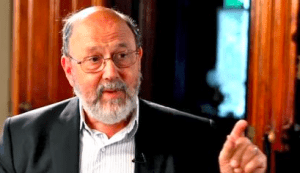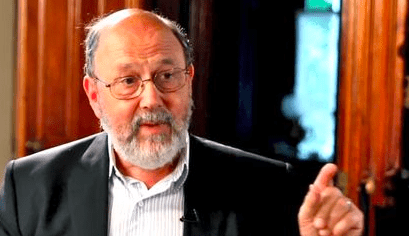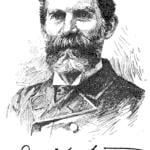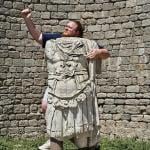 On Ferguson there are so many things to say about racism and injustices — and have been said by many and said well and I will be posting my own thoughts next week — but two clips about media accountability — constant coverage, repeating rumors and not facts, drawing conclusions too early, keeping the process under constant scrutiny — have me thinking about the importance and problem of media coverage of an event like this.
On Ferguson there are so many things to say about racism and injustices — and have been said by many and said well and I will be posting my own thoughts next week — but two clips about media accountability — constant coverage, repeating rumors and not facts, drawing conclusions too early, keeping the process under constant scrutiny — have me thinking about the importance and problem of media coverage of an event like this.
The first is by our friend Karen Spears Zacharias: (And I would add to her observations that media have become “judges” and “prosecuting” and “defense” attorneys well before the full evidence from both sides is known — and this distorts the story and complicates the process.)
Forgive me for harping, I know I keep repeating myself on this matter, but Media seems to have forgotten its role in society. Making good TV is not the role of Media. Reporting is the role of media. Reporting means to focus on facts, not spouting opinion. Someone noted that one of the news anchors took to the airwaves and declared during a major newscast that the Grand Jury had “failed” in its job to indict the police officer. As if an indictment was a forgone conclusion.
Everybody has an opinion these days.
To hell with facts.
Now I may be of the opinion that an injustice was done, but I have very little knowledge of the facts of the case. I might have an opinion about whether I think an indictment was in order but it’s just an opinion. I have nothing to base that opinion on other than that which has been reported to me by Media. I am not qualified based upon my limited access to the facts of the case to make an informed decision.
Media these days is too unreliable a source. They rely too much on rumor and innuendo. Gossip and yapping heads.
They have forfeited their reporting skills in order to be the first with a story, any story.
Sometimes Aaron Sorkin’s Newsroom seems more documentary than fiction.
In the past, Media has taken its role of responsibility seriously. They pursued the rumor until they had the facts, then reported Watergate and My Lai and yes, on Birmingham and Selma. They took seriously their job to inform us, but never assumed it was their job to work us into a lather of civil disobedience.
These days far too many of our so-called journalists are newsmakers, not reporters.
But, we need media to keep the process under scrutiny, as these two paragraphs from Naom Scheiber illustrate:
My own view is that St. Louis County prosecutor Bob McCulloch had two legitimate options following Wilson’s killing of Brown, neither of which he chose. The first would have been simply to decline to indict Wilson for the reasons McCulloch’s defenders posit—that the law would have made it very difficult to secure a conviction. The second legitimate option would have been to obtain an indictment against Wilson from the grand jury, which McCulloch almost certainly could have done had he sought one. But McCulloch chose a third option—using the grand jury process to establish Wilson’s innocence—which is deeply unfair.
Why? Because grand juries simply aren’t equipped to adjudicate guilt or innocence. As The New Yorker’s Jeffrey Toobin points out, prosecutors have enormous sway over grand juries. Typically, they cherry pick the evidence that establishes probable cause, helping them obtain indictments in almost every case. But in this case, McCulloch clearly didn’t believe an indictment was deserved. So he used his influence in the opposite direction—stacking the deck in favor of a non-indictment. Specifically, he inundated the grand jury with “every scrap of evidence [he] could find,” in Toobin’s words, at which point “the grand jury threw up its hands and said that a crime could not be proved.” [UPDATE: This New York Times story goes even further, showing how McCulloch’s team essentially cherry-picked evidence establishing Wilson’s innocence. It describes how they accepted Wilson’s account at face value, even leading him toward exculpatory statements through their questioning, while going out of their way to point out flaws and contradictions in alternative accounts from other witnesses.]
And another view, one focusing on moral responsibility, by African American Baptist pastor Voddie Baucham:
Rest assured, I do believe there are systemic issues plaguing black men. These issues are violence, criminality, and immorality, to name a few. And all of these issues are rooted in and connected to the epidemic of fatherlessness. Any truly gospel-centered response to the plight of black men must address these issues first and foremost. It does no good to change the way white police officers respond to black men if we don’t first address the fact that these men’s fathers have not responded to them appropriately.
There is indeed an epidemic of violence against black men. However, that violence, more often than not, occurs at the hands of other black men. In fact, black men are several times more likely to be murdered at the hands of another black man than they are to be killed by the police. For instance, in the FBI homicide stats from 2012, there were 2,648 blacks murdered. Of those, 2,412 were murdered by members of their own ethnic group. Thus, if I am going to speak out about anything, it will be black-on-black crime; not blue-on-black. I want to apply the gospel and its implications in a way that addresses the real issue. If a few black men being killed by cops requires a national “dialogue,” what in the world does the overwhelming number of black-on-black murders require? If the police do not see black men through the proper gospel-centered, image-of-God lens, what does the black-on-black murder rate say about the way we see ourselves?
A wonderful, and sad, story by John Rosengren about African American football player — the first ever — at Iowa State College: Jack Trice.
Meghan O’Gieblyn on her own spiritual journey and hell.
Like so many formerly oppositional institutions, the church is now becoming a symptom of the culture rather than an antidote to it, giving us one less place to turn for a sober counter-narrative to the simplistic story of moral progress that stretches from Silicon Valley to Madison Avenue. Hell may be an elastic concept, as varied as the thousands of malevolencies it has described throughout history, but it remains our most resilient metaphor for the evil both around and within us. True compassion is possible not because we are ignorant that life can be hell, but because we know that it can be.
H0w trendy was the apostle Paul? Nijay Gupta:
And yet, and this is perhaps the most important thing to know about Paul as apostle at large, he was remarkably un-trendy in his perspective on honor and power. You see, in Paul’s world, the hottest commodity was honor or reputation. It wasn’t dying with the most toys that mattered – it was dying with the highest number of honors recognized by the most number of people, popularity through status and virtue. Sometimes a concern with honor can be a very good thing, like a business “priding itself” on fine craftsmanship or excellent, trustworthy service. However, good “pride” can all-too-easily turn into greed and self-absorption wrapped up in the paper of “reputation.” While many first century people tried to position themselves as superior in the great race for honors in culture, Paul was far too busy being untrendy in the work of the gospel. Here are four ways Paul was noticeably “untrendy.”
Elahe Izadi, on broken hearts:
Yes, love is grand and can heal all wounds, as they say. But bad marriages can do just the opposite. People in unhappy marriages are at a much higher risk for heart disease than people in more joyous unions, according to a first-of-its kind study released this week.
“Married people seem healthier because marriage may promote health,” said lead study investigator Hui Liu, a Michigan State University sociologist. “But it’s not that every marriage is better than none. The quality of marriage is really important.”
That negative effect on cardiovascular health was even more pronounced for women and older adults, as found in the National Institutes of Health-funded study published this week in the Journal of Health and Social Behavior. It’s one of the first to take a nationally-representative sample of adults and examine the impact of marriage quality on heart health over time.
Poop cruise:
Move over, poop cruise.
There’s a new poop-related form of transport on the road, and this one is more neat than nasty.
A “Bio-Bus” that runs solely on the biomethane gas generated by treated waste (of the food and human variety) is up and running as of this week in the UK, where it’s following a Bristol-to-Bath route.
The BBC reports that the 40-seat bus can go 186 miles on a single tank of gas; creating that tank requires the equivalent of five people’s waste for one year. (It’s unclear if that’s sewage waste only, or includes a person’s food waste, too.)
The bus emits 30% less carbon dioxide than a comparable diesel engine would.
Jessica Cilella:
On a recent Tuesday morning, Bernard and Margaret Sloan got flu shots, had their blood drawn and discussed medications with their doctor.
The couple — married 67 years — had their procedures done by a nurse and Dr. Paul Chiang, home health care provider extraordinaire, while they sat on a red, floral sofa in the comfort of their Wheaton home.
“There’s just something unique being in the home that you can’t get in the hospital, ER or doctor’s office,” Chiang said. “I’m going into your world. I’m stepping into your life.”
This summer, Chiang completed his 25,000th house call since 2000, when he started working forHomeCare Physicians, a Wheaton-based medical house call program.
He may not carry the same black bag as did doctors who routinely made house calls in the 1950s and earlier, but Chiang’s motivation and mission are the same.
“The heart of medicine is about service. It’s about caring for my patients,” he said. “I have such an opportunity to get a better feeling and a better understanding of my patients, their families, their joys and their struggles by being at their house.”
Rachel Feltman:
This weekend, Italian astronaut Samantha Cristoferetti will travel to the International Space Station with precious cargo in tow — a specially designed espresso machine that will produce the authentic Italian brew in zero gravity. In addition to being Italy’s first female astronaut to go into space, she’ll be the first astronaut in history to sip real espresso while orbiting the Earth.
Until now, the intrepid explorers who circle high above us have had to make do with instant. Those dark days are finally behind us.
ISSpresso was custom-made by LavAzza, an Italian coffee company, along with Argotec, an aerospace firm that specializes in creating space food.
But how does it work?
Exercise and brain health:
By Kathryn Doyle
NEW YORK (Reuters Health) – Children who participated in a physical activity program after school did better on thinking tasks than kids who didn’t take part in the program, according to a new study.
Participants in the nine-month program performed better on tasks that tested their abilities to block out distractions, focus and multitask, said Charles H. Hillman, the study’s lead author from the Department of Kinesiology and Community Health at the University of Illinois at Urbana-Champaign.
Those skills, he added, are needed by people throughout their lives.
“Kids and adults do these things all the time,” said Hillman.
Additionally, the findings suggest that physical activity has a direct effect on brain health. If that’s true, then cutting back on physically active times of the day like recess may have unintended consequences, the researchers write in the journal Pediatrics.
Previous research has found that inactivity affects adults’ brain health, but there have been few studies to test the connection between inactivity and brain health among children, the researchers write.
Meg Murphy on marriage — is it changing?
The overall forces of biology, social needs, and economics will never let some form of long-term partnership fade away, according to Bentley University’s Dean of Arts and Sciences Daniel Everett.
The definition of marriage has been fluid over time and between cultures, he said. “In American marriages, as they have evolved, the ideal is to marry by mutual consent and build first and foremost a relationship,” said Everett.
“Among some Amazonian societies, the marriage relationship is first an economic partnership, with clear division of labor, from which a relationship may develop,” said Everett.
“Among more religious societies, such as rural Catholic in southern Mexico where I have done field research among the Tzeltals, there is some overlap with the Amazonian — and American rural — model as economy first, relationship second, with clear division of labor, but with the added sanction of religion,” said Everett.
Will the millennial generation usher in a new era that saves American marriage by allowing it to evolve? Radical as it may seem, they just might.
Bathrooms and those air dryers:
First things first: When you go to the bathroom, wash your hands properly when you’re done. Seriously. This is not a drill.
But what to do with those wet hands? Putting them under a hand dryer could end up spreading bacteria in public restrooms, according to research conducted by University of Leeds scientists and published in the Journal of Hospital Infection.
Researchers coated subjects’ hands with Lactobacillus, a harmless bacteria that you don’t typically come across in a public bathroom. The idea was to mimic hands that hadn’t been washed properly. After drying hands, researchers went in and conducted 120 air-sampling tests. They found that Lactobacillus counts in the air were 4½ times higher near high-powered jet dryers than around warm-air dryers. And bacteria counts were 27 times higher near warm-air dryers than when subjects used paper towels.
 Maybe N.T Wright’s best title yet is Surprised by Hope, that word “surprise” giving Wright not a few opportunities to provide the shocking news of the gospel with that word “surprised.” So chp 3 in Simply Good News is called “Surprised by King Jesus.” Which is his way of setting up the reality of Jesus in his historical context as an over-against the Roman and Jewish powers that be (or were, and still are alive and well in our world).
Maybe N.T Wright’s best title yet is Surprised by Hope, that word “surprise” giving Wright not a few opportunities to provide the shocking news of the gospel with that word “surprised.” So chp 3 in Simply Good News is called “Surprised by King Jesus.” Which is his way of setting up the reality of Jesus in his historical context as an over-against the Roman and Jewish powers that be (or were, and still are alive and well in our world).














